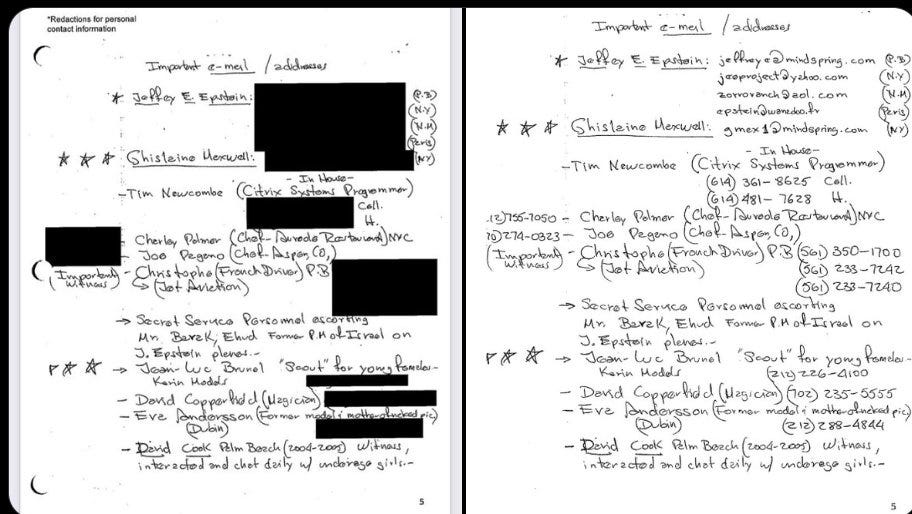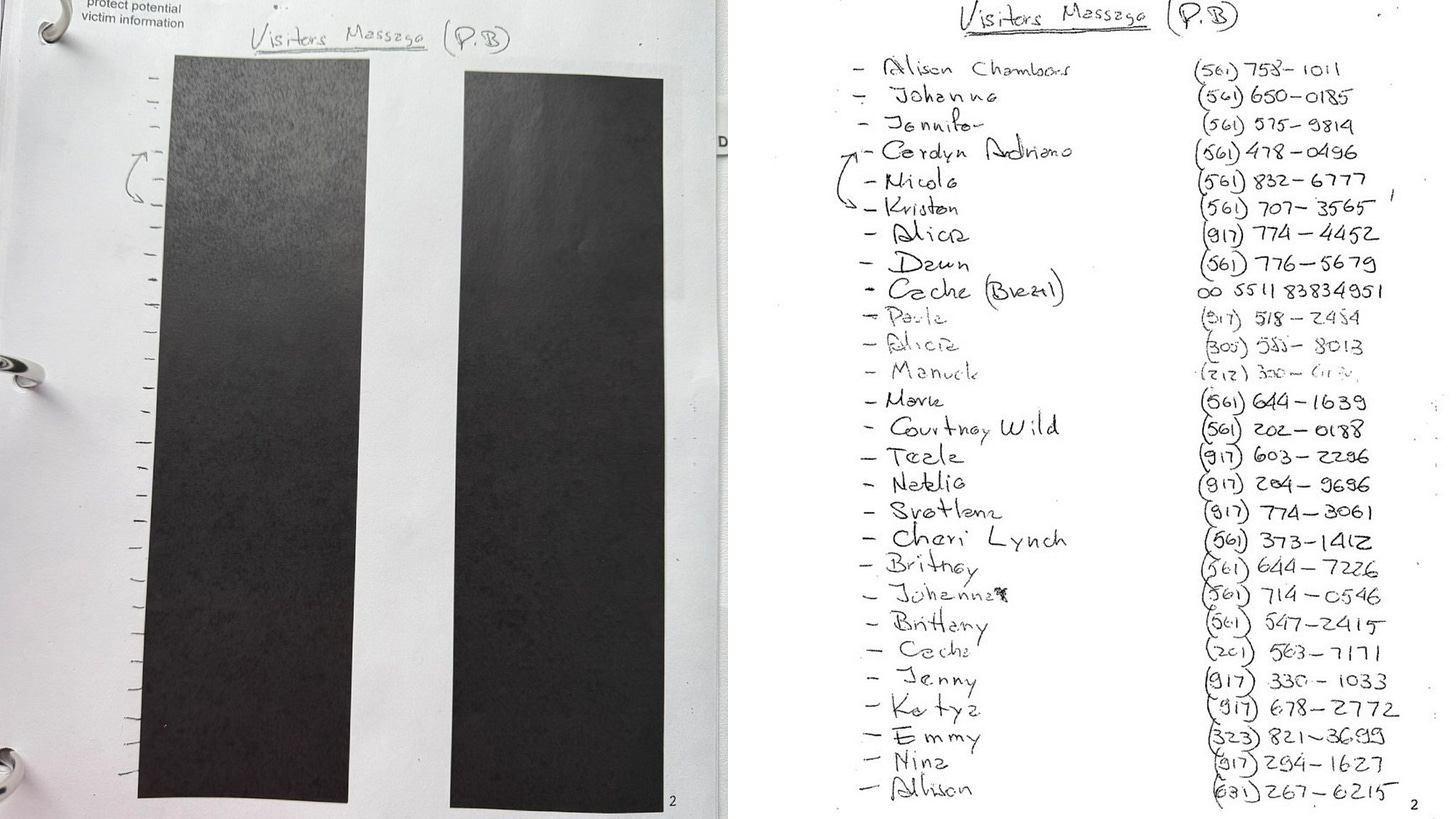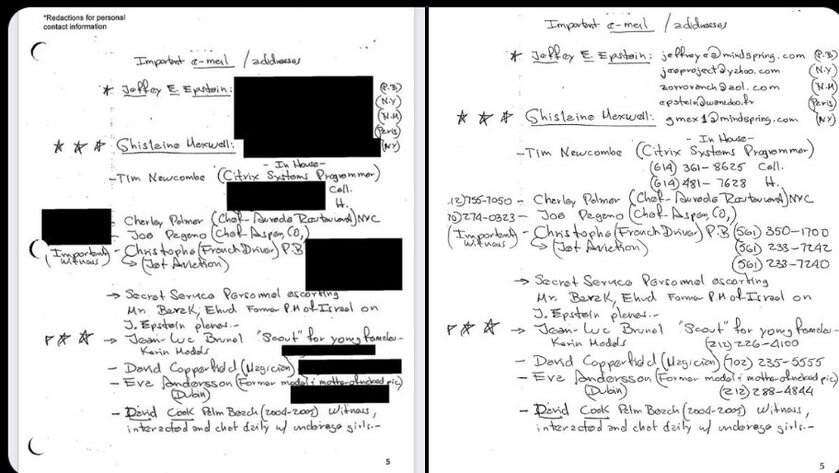Washington, D.C. – The much-anticipated release of the so-called "Epstein Files" by U.S. Attorney General Pam Bondi has left lawmakers, commentators, and the public frustrated, as the documents unveiled today contained little to no new information about the late financier and convicted sex offender Jeffrey Epstein. Touted as a landmark moment of transparency under the Trump administration, the release—labeled "Phase 1"—consisted of roughly 200 pages, including flight logs and a partially redacted contacts list, much of which had already been made public in prior court filings and lawsuits.
The anticlimactic disclosure has sparked widespread disappointment, particularly among those who expected explosive revelations about Epstein’s high-profile associates and the extent of his criminal network. Rep. Anna Paulina Luna (R-Fla.), who chairs a congressional task force on declassifying federal secrets, voiced her frustration on social media, stating, “I nor the task force were given or reviewed the Epstein documents being released today… A NY Post story just revealed that the documents will simply be Epstein’s phonebook. THIS IS NOT WHAT WE OR THE AMERICAN PEOPLE ASKED FOR and a complete disappointment.” Conservative commentator Glenn Beck echoed the sentiment, calling the release “a total joke” and questioning who might be undermining the administration’s efforts.

The documents, which included flight logs from Epstein’s private jet and a list of contacts without additional context, offered no fresh insights into the identities of his alleged “clients” or previously undisclosed accomplices. Much of the material overlapped with records unsealed in 2024 from a lawsuit filed by Epstein victim Virginia Giuffre, leaving many to wonder why the release was hyped as groundbreaking. “It’s a nothing burger,” one source familiar with the documents told the New York Post, predicting it would disappoint those hoping for bombshell evidence tying prominent figures to Epstein’s crimes.
Amid the backlash, Attorney General Pam Bondi shifted blame to the FBI, accusing the agency of withholding critical information. In a fiery letter sent Thursday to FBI Director Kash Patel, Bondi claimed she had been misled about the extent of the Epstein files in the government’s possession. “I repeatedly questioned whether this was the full set of documents responsive to my request and was repeatedly assured by the FBI that we had received the full set of documents,” she wrote. “Late yesterday, I learned from a source that the FBI Field Office in New York was in possession of thousands of pages of documents related to the investigation and indictment of Epstein. Despite my repeated requests, the FBI never disclosed the existence of these files.”

Bondi demanded that the FBI deliver the “full and complete Epstein files” to her office by 8:00 a.m. on Friday, February 28, including all records, audio, video, and materials related to Epstein and his clients, with “no withholdings or limitations” to her access. She also directed Patel to investigate why her initial orders were not followed, requesting a comprehensive report within 14 days. “The Department of Justice will ensure that any public disclosure of these files will be done in a manner to protect the privacy of victims and in accordance with law,” she added, emphasizing her career-long commitment to victim rights.
The accusation has fueled speculation and distrust, with some suggesting the limited release was a deliberate move to deflect scrutiny or protect powerful individuals. Others see it as evidence of internal resistance within the FBI, particularly from its New York field office, which has long been a target of criticism from Trump and his allies. Patel, newly confirmed as FBI Director, responded on X, promising “a new era” of transparency and vowing to uncover any hidden records. “There will be no cover-ups, no missing documents, and no stone left unturned,” he wrote.
For now, the fallout from the release—or lack thereof—has only deepened public skepticism. Epstein, who died by suicide in a Manhattan jail in 2019 while awaiting trial on sex trafficking charges, remains a lightning rod for conspiracy theories and demands for accountability. With Bondi promising more documents to come, the question remains whether the next phase will deliver the revelations so many have been waiting for, or if the saga will continue to frustrate those seeking the full truth about Epstein’s sprawling network of influence and crime.




















